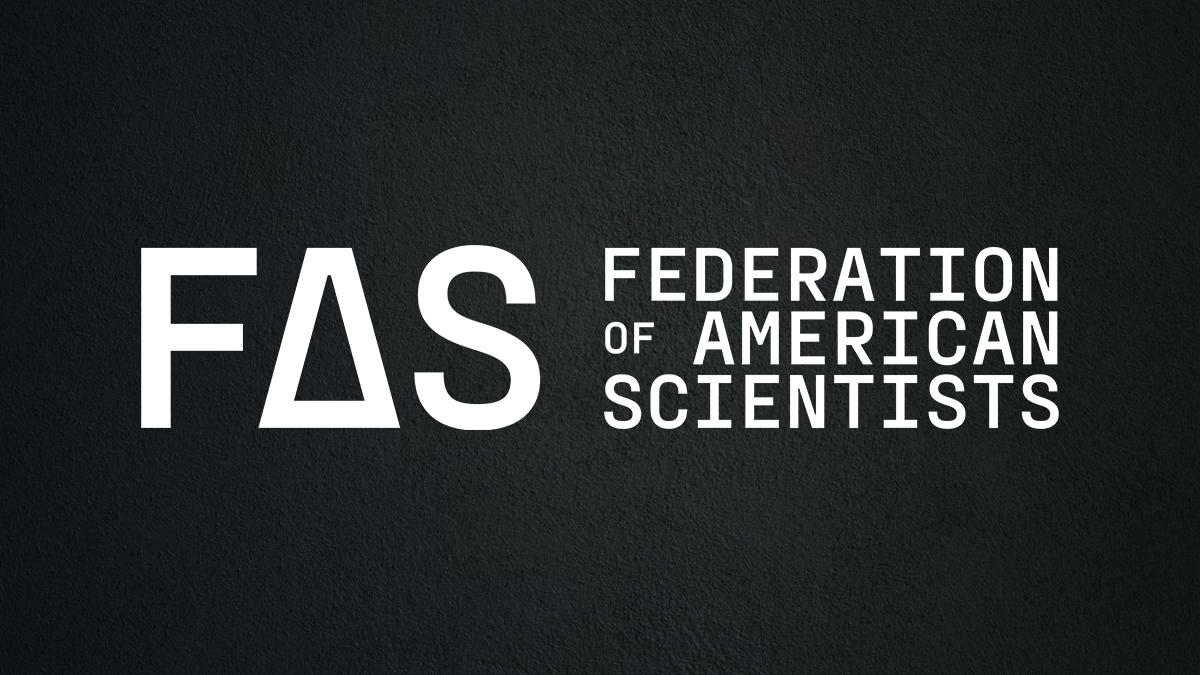
Director Christopher Nolan, Senators Schumer and Young, Dr. Alondra Nelson and Alexa White To Be Honored by the Federation of American Scientists with FAS Public Service, Policy Entrepreneur Awards
The Federation will spotlight outstanding work in science policy and culture in downtown Washington, D.C. November 15th in an event emceed by tech journalist Kara Swisher
Washington, DC – November 14, 2023 – On November 15th the Federation of American Scientists (FAS) is reviving a decades-long tradition, first started in 1971, to honor luminaries in science, technology, and public service with the FAS Public Service Awards. This year, honorees include filmmaker Christopher Nolan for his cinematic portrait of scientist J. Robert Oppenheimer, Senators Chuck Schumer (D-NY) and Todd Young (R-IN) for their work in Congress making the CHIPS & Science Act a reality, Dr. Alondra Nelson, for her leadership on both A.I. regulation and advancing equity in STEM fields, and Alexa White, who will receive FAS’ first ever “Policy Entrepreneurship” award – aimed at honoring an emerging leader in the world of science policy. Tech journalist Kara Swisher will emcee the event.
“I was proud to lead the largest investment in American innovation in a generation, the CHIPS and Science Act, with Senator Young last Congress,” says Leader Schumer. “CHIPS and Science began with the Endless Frontier Act, and with the help of so many–including the Federation of American Scientists–we turned this transformative proposal into law. The CHIPS and Science Act will ensure the U.S. stays on the cutting-edge of research and out-competes the world in technology development and advanced manufacturing.”
“It is an honor to rekindle this historic tradition and celebrate the contributions to science of such an incredible and diverse group of leaders, storytellers and policy entrepreneurs,” says Dan Correa, CEO of FAS.
FAS, one of the oldest science think tanks in America, formed in the fall of 1945 as the ‘Federation of Atomic Scientists’ to communicate the dangers of nuclear weapons to the public. This mission continues as world events remind us that nuclear war remains a danger. FAS has expanded its mission of policy change through the lens of scientific expertise to include additional and emerging global threats, such as climate change and AI.
Following the award presentation, honorees will be joined by Dr. Geraldine Richmond, the Under Secretary of Energy for Science and Innovation in the US Department of Energy, for a fireside chat about emerging global threats and opportunities. Dr. Richmond oversees the nation’s largest federal sponsor of the physical sciences, and is helping to lead the Department’s work in artificial intelligence.
This is a closed event but interested parties may follow updates on social media at #FASAwards.
ABOUT THE FAS PUBLIC SERVICE AWARDS
Started in 1971, the FAS Public Service Awards honors the contributions of a diverse group of scientists, policymakers, and tastemakers in pursuit of advancements in science and technology. Previous winners of the award include: Senators Ted Kennedy, Sam Nunn and Richard Lugar and Secretaries Henry Kissinger, George Schultz and William Perry, and author Carl Sagan, editor Ruth Adams, and activist Sally Lillenthal. This is the inaugural year for the FAS Policy Entrepreneurship award, to recognize someone who identified a policy need and took action to address it using science and technology.
ABOUT FAS
The Federation of American Scientists (FAS) works to advance progress on a broad suite of contemporary issues where science, technology, and innovation policy can deliver dramatic progress, and seeks to ensure that scientific and technical expertise have a seat at the policymaking table. Established in 1945 by scientists in response to the atomic bomb, FAS continues to work on behalf of a safer, more equitable, and more peaceful world. More information at fas.org.
This rule gives agencies significantly more authority over certain career policy roles. Whether that authority improves accountability or creates new risks depends almost entirely on how agencies interrupt and apply it.
Our environmental system was built for 1970s-era pollution control, but today it needs stable, integrated, multi-level governance that can make tradeoffs, share and use evidence, and deliver infrastructure while demonstrating that improved trust and participation are essential to future progress.
Durable and legitimate climate action requires a government capable of clearly weighting, explaining, and managing cost tradeoffs to the widest away of audiences, which in turn requires strong technocratic competency.
FAS is launching the Center for Regulatory Ingenuity (CRI) to build a new, transpartisan vision of government that works – that has the capacity to achieve ambitious goals while adeptly responding to people’s basic needs.